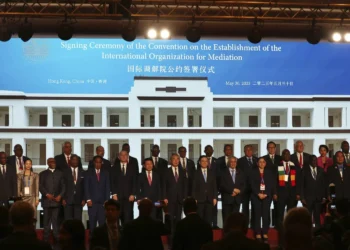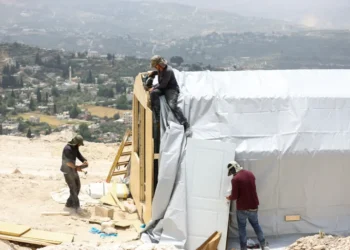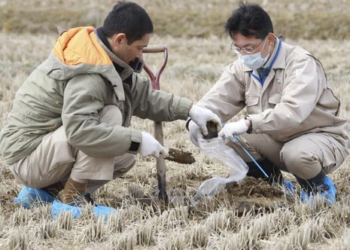In an effort to pressure Hamas into accepting a change in the ceasefire agreement, Israel has cut off humanitarian supplies to Gaza.
The office of the Prime Minister, Benjamin Netanyahu, disclosed on Sunday, March 2, 2025, that it was imposing a blockade on Gaza because Hamas would not accept a plan which it claimed had been put forward by the US special envoy, Steve Witkoff, to extend phase one of the ceasefire and postpone phase two, which envisaged an Israeli withdrawal from the Gaza Strip.
It said in a statement that Israel will not allow a ceasefire without the release of its hostages, adding that if Hamas continues its refusal, “there will be further consequences.”
After the announcement, Netanyahu’s spokesperson, Omer Dostri, wrote in a social media post, “No trucks entered Gaza this morning, nor will they at this stage.”
The announcement, which Netanyahu’s office claimed had US backing, after the breakdown of talks in Cairo aimed at maintaining the ceasefire as it approached the end of its first six-week phase, over whether the truce should advance to a second phase.
The Prime Minister’s office said earlier on Sunday that it agreed on the adoption of what it described as Witkoff’s proposal to extend the first phase of the ceasefire through Ramadan and Passover, which end on April 20, 2025, during which half of the living hostages and half of the bodies of those who have died would be released.
On the conclusion of that temporary extension, the statement said, “If agreement is reached on a permanent ceasefire, the remaining living and deceased hostages will be released.”
The far-right Israeli Finance Minister, Bezalel Smotrich, said that the decision to halt the flow of aid was “an important step in the right direction.”
Referring to Donald Trump’s earlier threat to open the “gates of hell” on Gaza, Smotrich said in a social media post, “Now we need to open these gates as quickly and deadly as possible on to the enemy, until complete victory.”
The first phase of the ceasefire chiefly involved the release of Israeli hostages in exchange for Palestinians held in Israeli jails, an increase in aid deliveries and a retreat of Israeli troops from some positions.
The second phase requires a complete Israeli withdrawal and a more enduring cessation of hostilities.
Hamas Slams Israel’s Decision

A statement from Hamas called the suspension of aid a “war crime” and a violation of the ceasefire agreement.
It said that Netanyahu’s “decision to suspend humanitarian aid is cheap blackmail, a war crime and a blatant coup against the [ceasefire] agreement.”
The Witkoff plan as described by Netanyahu’s office appeared similar to Israel’s proposal for a six-week extension of the first phase of the ceasefire, with hostage releases, but it made no mention of the troop withdrawal that was part of the original truce agreement in January.
Hamas said that the proposal made clear that Israel was seeking to disavow the deal it previously signed.
During the 15 months of the Israel-Gaza war, the Netanyahu government repeatedly denied claims from aid agencies that it was blocking humanitarian deliveries, blaming the very limited flow on other factors.
Before the ceasefire, UN officials had warned that widespread famine was imminent.
In the six weeks of the first phase of the truce, deliveries returned to the prewar levels of about 600 trucks a day, mostly carrying food.
Aid officials said that even with the restoration of food deliveries, the lack of drinkable water, the near complete destruction of Gaza’s hospitals and clinics, the lack of shelter in the midst of winter and the buildup of untreated sewage among the rubble could all be lethal to the surviving 2.2 million population.
READ ALSO: Putin Lauds Rapprochement With Trump Administration







